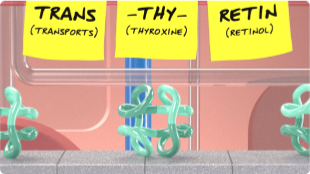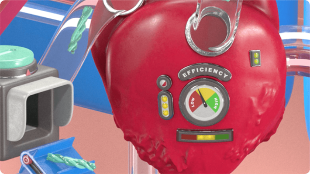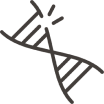get the message
about attr‑cm
ATTR‑CM (transthyretin amyloid cardiomyopathy) is a rare, serious, underrecognized, and underdiagnosed type of amyloidosis that affects the heart and is associated with heart failure.


Actor portrayal
See what happens inside the body
when you have ATTR‑CM
Watch the video or scroll down to learn more.
1
The liver produces transthyretin, a transport protein that carries the hormone thyroxine and vitamin A (retinol) throughout the bloodstream.

2
When someone has ATTR‑CM, either due to aging (wild-type) or an inherited genetic variant (hereditary), the protein becomes unstable and misfolds.

3
Over time, the misfolded proteins join together and build up in the body, including in the heart (causing the heart muscles to thicken and stiffen, eventually leading to heart failure).

There are 2 types of ATTR‑CM

Actor portrayal
Wild-type ATTR‑CM (wATTR):
- Associated with aging
- Most often affects White men over the age of 60
- May be the most common form of ATTR‑CM

Actor portrayal
Hereditary ATTR‑CM (hATTR):
- Caused by a gene change
- Passed down from a relative
- Affects both men and women, with symptoms beginning as early as 50 to 60 years old
- There are more than 120 known gene changes, also known as mutations, that cause hereditary ATTR‑CM; the most common mutation in the United States is V122i

V122i almost exclusively affects African Americans
In the United States, the V122i mutation is found almost exclusively in individuals of African ancestry. Approximately 3% to 4% of African Americans in the US are thought to be carriers of the mutation. However, not all individuals with the V122i mutation develop symptoms of hereditary ATTR‑CM.
Importance of genetic testing

Voices for the Heart
Learn more about hereditary ATTR‑CM and Voices for the Heart community events.
